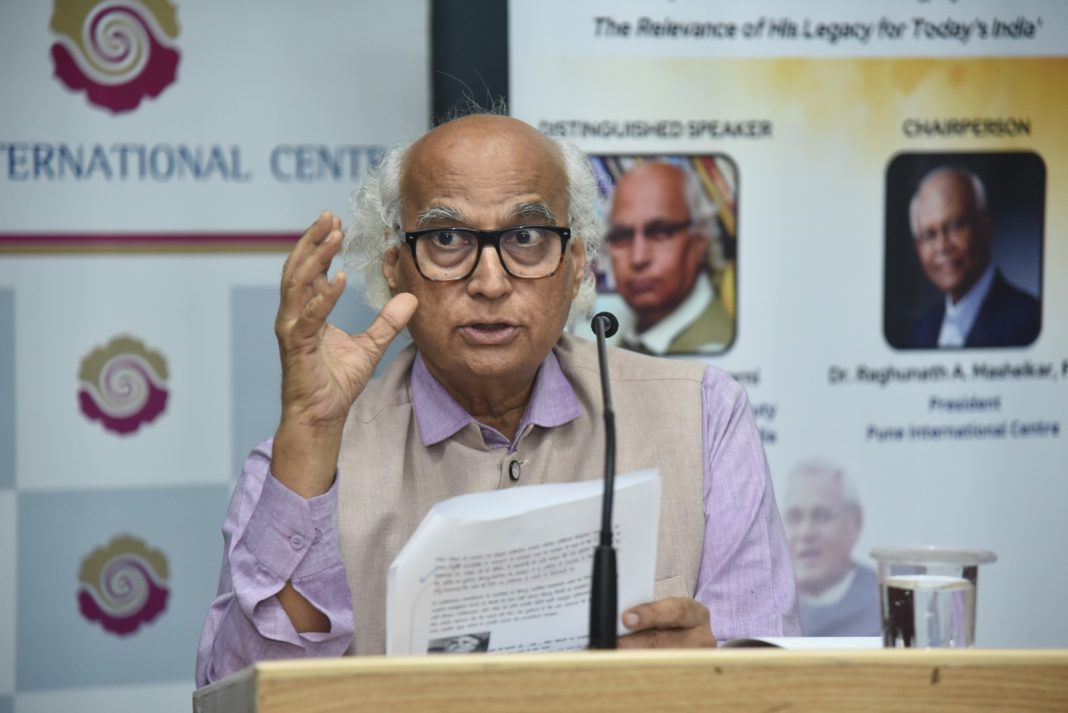Atal Bihari Vajpayee, known as a “great son of India” and one of the nation’s most respected prime ministers, left a lasting impact on Indian politics and governance. His leadership style, ideas on democracy, secularism, and efforts in foreign relations remain relevant even today. In a recent event in Pune, scholars reflected on his legacy and its importance for India’s future. The event was part of a series of centenary lectures honoring Vajpayee’s contributions.
Champion of Democracy and Dialogue
Atal Bihari Vajpayee believed in the power of democracy and that its true spirit lies in cooperation, not conflict. This idea shaped his tenure as Prime Minister, where he encouraged harmony between different political parties. The term Coalition Dharma, meaning the duty to work together, was one of his major contributions to Indian political dialogue. He demonstrated that leaders could effectively govern by building coalitions, even with opposing parties, and fostering respect between political opponents.
Vajpayee’s approach to parliamentary debate was a reflection of his deep respect for democracy. He believed in healthy discussions, where every voice, even that of an opponent, was important. By institutionalizing Centre-State consultations, he worked towards creating a balanced and cooperative relationship between different levels of government. His ability to accept suggestions from other parties earned him admiration across the political spectrum, showing that politics does not have to be a battleground, but rather a platform for collaborative governance.
Positive Secularism and Inclusivity
Despite being a staunch Hindu, Vajpayee always stood for what he called “positive secularism.” This meant creating a society where people of all faiths, beliefs, and backgrounds could coexist peacefully. Atal Bihari Vajpayee believed that no section of society should feel alienated or excluded, an ideal he termed as Raj Dharma—the duty of the ruler to ensure fairness for all. Vajpayee’s brand of secularism was about unity and inclusivity, not division. He emphasized that India’s strength lay in its diversity, and this belief guided his policies.
Vajpayee’s principles of secularism were not just words; they were reflected in his actions. He ensured that every section of society, regardless of religion or background, felt like an integral part of India’s growth story. His inclusive governance style created a sense of belonging among citizens, helping foster national unity during his tenure.
Resolving International Conflicts: Pakistan and China Relations
Vajpayee’s approach to foreign relations was rooted in dialogue and peaceful resolutions, even with adversarial nations. His efforts to normalize ties with Pakistan, including the historic Lahore bus journey, symbolized his desire for peace in the region. Even though his peace initiative faced challenges, such as the Kargil War, he remained steadfast in his belief that war would harm both nations. His vision for resolving the Kashmir issue through insaaniyat (humanism) brought him the trust of the people in Kashmir. His famous statement that he would have resolved the Kashmir conflict with one more term as Prime Minister is a testament to his commitment to peace.
Similarly, Atal Bihari Vajpayee also laid the groundwork for peaceful relations with China. His tenure saw progress in border dispute talks between India and China, where both countries agreed to engage in dialogue through appointed representatives to find a lasting solution. Vajpayee had also been involved in India-China relations during his earlier role as Minister of External Affairs, where he proposed a “packaged solution” to settle the border disputes. His long-term vision was clear: conflict should be avoided, and peaceful engagement should be pursued.
A Vision for India’s Progress
Vajpayee’s influence extended beyond politics and foreign policy. His leadership in developing India’s infrastructure, particularly in the highways, IT, and telecom sectors, helped modernize the country. He had a vision to strengthen emotional and political connections within India and with neighboring countries. This vision shaped much of India’s regional diplomacy. His focus on building diasporic and neighborhood connectivity enhanced India’s global relationships. This helped position India as a key player on the international stage.
At a recent centenary lecture, Vajpayee’s legacy was celebrated for its lasting impact on India. His approach and policies continue to shape the country’s progress today. As India moves forward, Vajpayee’s vision remains a source of inspiration. His emphasis on inclusivity, dialogue, and cooperation guides both current and future leaders.





